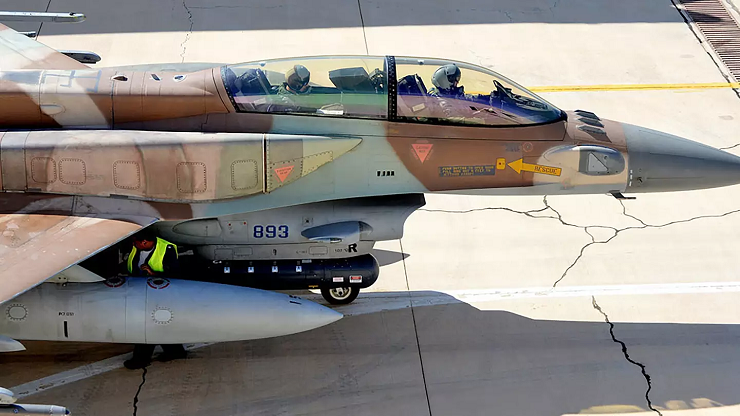Until few weeks ago, there was an undeclared war that Israel had waged on Iran in Syria to force Iranian presence out the country. While the war was officially ‘undeclared’, various pronouncements by the top-rank Israeli officials confirmed that there was a war going-on in Syria. However, a number of statements made by Israeli officials would indicate that the war is going. “We struck thousands of targets without claiming responsibility or asking for credit”, said Gadi Eizenkot, the recently retired IDF Chief of General Staff, in an interview with the New York Times that he gave days before his retirement. The central objective of this undeclared air-war, the General explained, has been to ‘degrade’ the Iranian forces in Syria so that they are pre-empted from directly attacking Israel. And, even if they do attack at some point in future, this war undeclared war would make sure that they are beaten comprehensively. In so doing, the damage i.e., damaging the enemy’s capabilities, done through this undeclared war would play a crucial role.
Israel, by attacking Iran in Syria, is therefore only preparing for the war that is yet to come. Repeated Israeli strikes, like the one carried out few days ago, are accordingly only a practical manifestation of this strategy of “war between wars”, cod-named “Operation Chess.”
Israel believes that the war is necessary to break the Iranian expansion in and beyond the region. Thus the General explained, “We operated under a certain threshold until two-and-a-half years ago”, and after that “we noticed a significant change in Iran’s strategy. Their vision was to have significant influence in Syria by building a force of up to 100,000 Shiite fighters from Pakistan, Afghanistan and Iraq. They built intelligence bases and an air force base within each Syrian air base. And they brought civilians in order to indoctrinate them”, leading Israel to boost their campaign, making aerial attacks a nearly daily event. For instance, in 2018 alone, the air force dropped about 2,000 bombs on Iranian targets in Syria.
On December 26, Israel’s primer minister, Netanyahu, confirmed to Israeli air-cadets that Israel is acting against Iranian entrenchment in Syria “continuously and with firmness, including during the current period”, adding further that a possible US withdrawal from Syria doesn’t change the Israeli policy. Given that Israel is adamant in pursuing this policy in future and that the recent strike was even followed by a rare official admission of the strike, it becomes evident that in the wake of a US withdrawal, Israel is actually boosting its campaign.
But the fact that Israeli campaign against Iran has reached new heights with its officials admission of an actual campaign, and that it has come in the backdrop of a possible US withdrawal from Syria and re-deployment of troops to Iraq, it means that the decision to boost the campaign and make it official is a part of the new strategy that the US-Israel nexus is deploying in the region.
But an Israeli campaign in Syria against Iran would have a geo-political cost too: it might severely damage its relations with Russia. Russia has repeatedly called Israeli strikes as “provocative” and dangerous. Not only can these strikes turn out to be extremely counter-productive, but also run the risk of an un-necessary escalation, which, if it happens, would not bode well for the political process that Russia has set in motion in collaboration with Iran as well as Turkey to bring political stability to Syria.
While Russia has repeatedly assured Israel in the past about not allowing an Iranian presence within a certain distance of Syria-Israel border, the unabated strikes tend strongly to give the message of an Israeli resolve of potentially not relying on Russia as the balancer between Israel and Iran, something that would add to Kremlin’s concerns about systematic attempts at sabotaging the peace process through an escalation in Syria.
How the “Operation Chess” is already causing friction between Israel and Russia is evident from the way Israel Security Agency Director Nadav Argaman hinted earlier this month that Russia was ‘interfering’ in the upcoming Israeli elections through its cyber capabilities, which means that Tel-Aviv is ramping up its media campaign against Russia. On the other hand, Moscow has also shown its displeasure with Israeli tactics by inviting Hamas leader, Ismail Haniyeh to Moscow and vociferously criticizing Israeli airstrikes.
Accordingly, while Israeli air-strikes are unlikely to force Iran out of Syria, the frictions that these strikes are causing are making it evident that Israel might lose the only leverage i.e., Russia, that it has and can use to indirectly influence Syria and Iran. Conversely speaking, while Israel is most likely to unable to force Iran out of Syria through an air-campaign alone, it is most likely to end up fusing Iran and Russia in an even stronger strategic bond. With a US withdrawal from Syria, Israel, therefore, is likely to end up facing a Russian-Iranian alliance against itself.
Salman Rafi Sheikh, research-analyst of International Relations and Pakistan’s foreign and domestic affairs, exclusively for the online magazine “New Eastern Outlook”.

